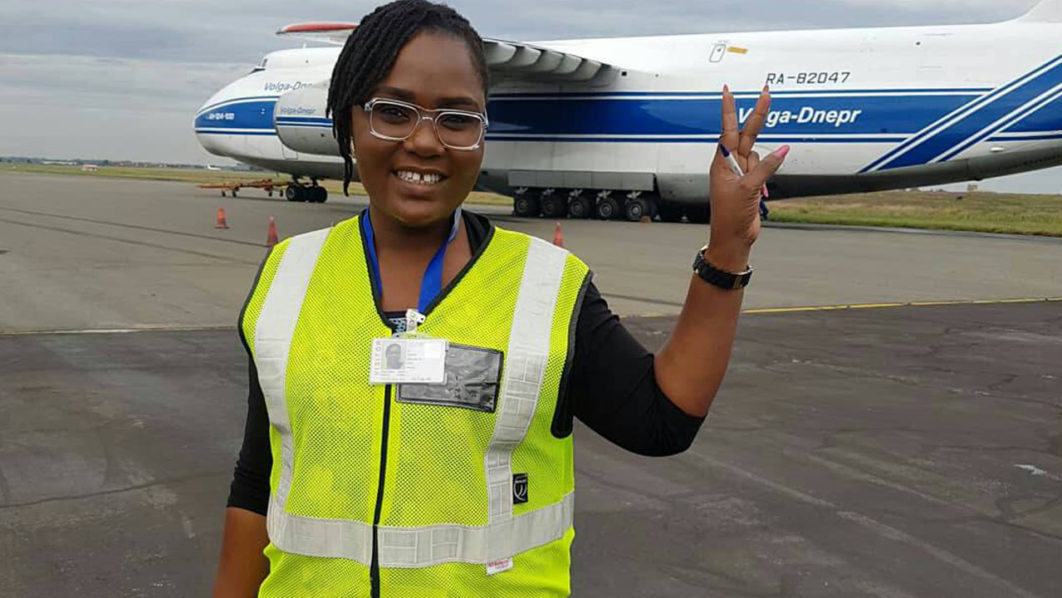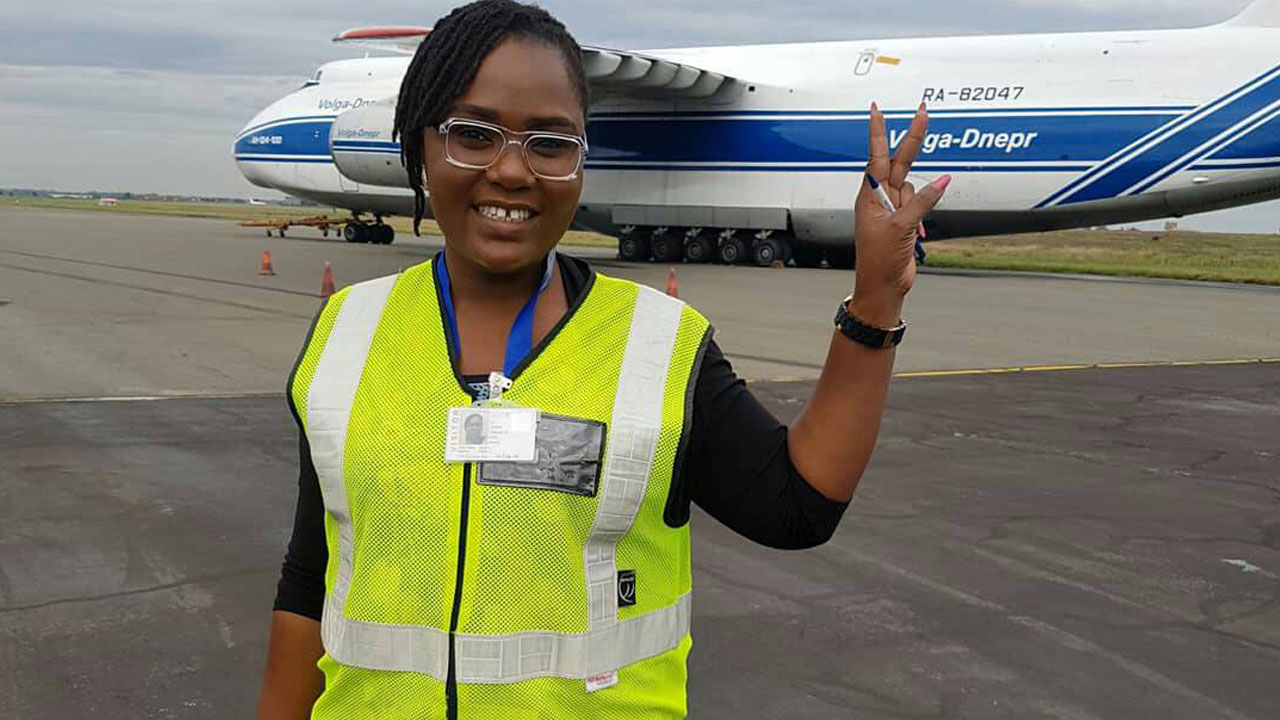
The thirty-something-year-old lady behind the large flat screen computer is a dictionary of some sort on issues related to the aviation industry, especially Airports Council International (ACI). The kind of nitty-gritty knowledge she has about the industry is expected from veterans who have spent at least two decades on the job. But Omoh Ohiomoba, Manager Economics, Communications & Marketing ACI Africa has only stayed worked with the Federal Airports Authority of Nigeria (FAAN) for five years before she joined ACI Africa a year ago.
Though her work is challenging, she is happy doing it for ACI, the trade body for all the airports in the world.
“ACI is divided into regions in order to be closer to its clients or stakeholders” Omoh says, launching into a detailed description of the organisation. “There are five regions: Africa, Asia-Pacific, Europe, Latin America and North America. The Africa region has 62 members in 47 countries, managing 250 airports.” To achieve its goals ACI has four regional committees — Safety & Technical; Facilitation & Transportation; Economics & Environment, and Human Resources.
[ad]
Though it is a non-profit organisation, ACI has business partners. “We have 28 business partners who do business with airports in Africa. These businesses offer services such as ticketing, construction, architecture, fire service, training, IT and other airport services. We have El Mansur Atelier Group, an architectural firm, Japan Tobacco and Mace among others,” the Covenant University graduate of Economics explains.
Switching smoothly to matters about the 59th ACI Africa Board and Committees Meetings & Regional Conference and Exhibition, the latest project she is working on for ACI Africa as the secretariat overseer, Omoh explains that, making airport business sustainable for airport managers is one of the main goals of ACI.
“Business transformation is top of the agenda for ACI Africa. Which is why the conference is timely,” she says.
The Nigerian technocrat who has travelled a lot over the course of her engagement with ACI revealed that most airports in Africa are only struggling to remain in business. They are state-run and the only lifeline for many of them is government subsidy. Yet, like all other businesses, airports need to be viable to meet their own operating expenses.
She explains, “The plan is to move airports from being nonviable to self-sustaining entities. There are different ways to transform to being viable — it’s a case by case basis. Where privatisation might work for one airport it might not for another. Each airport has to be looked as a case on its own. Privatisation is one way, improving or increasing aeronautical and non-aeronautical revenues is another.
“This conference is going to touch on most of the areas airports should pay attention to so that when the delegates go back, they’ll look at their peculiar situation and think of ways to handle their transformation,” Omoh says with enthusiasm. She expresses a conviction that the conference will work on the mindset of airport managers, motivating them to see more sustainable ways of doing the business by exploring the abundant opportunities in public-private partnerships (PPP).
She asserts that the private investor in a PPP agreement will be hungry for results. “Most airports in the world have concessions for a lot of their operations. Some airlines are co-owners and co-managers of airports. Why aren’t we looking at these opportunities and possibilities?” She asks rhetorically.
Shifting the focus back to the ACI Africa conference scheduled to hold from 14th to 20th April she pointed out that more of the issues would be discussed there, while the conversations would continue for a long time after.
“The conference doesn’t end on 20th April at the Oriental Hotel. It continues afterwards. At the end of the conference, participants will go back with knowledge they can apply to their work. This is one the quickest gains,” she says.
[ad]
It is not surprising then, that past ACI conferences held in Mauritius, Zambia, Mozambique and Egypt remain brilliant reference points for the airport business in the continent. Apart from the jaw-jaws, the advantage of having different countries host the ACI Africa conferences is that members get to see, first-hand, what other countries and airport authorities are doing.
With Omoh’s impressive understanding and analysis of issues in the aviation industry, holding her audience spellbound for hours at a time, it is only natural to inquire what exactly her role entails and how she got the role.
“My role in all of this is communication which I juggle with economics and marketing,” she explains. “When I started with ACI the role was to handle economics for the regional committee. After a while I was asked to handle communications. Later I was asked to help with the business partners. The role evolved. I manage though it requires travelling frequently.”
For Omoh, who holds a Masters Degree in International Finance from University of Leeds, the multitasking is not just the ones common to many people, especially women. Her job has its peculiar challenges. And of course, she must take care of the home front adequately too. Still, she appreciates it deeply and describes it as a responsibility which she must guard.
“I want to show that I can do it. It’s an honour to be in this role, to perform to acceptable standards. I don’t take that for granted. It might be draining, it might be tiring but I do it, the work has to go on. Somebody has to do it; why not me? Family is priority. The job may take a toll, but I don’t want either my job or family to suffer. I have a six-year-old son and he is everything. I need to make sure he doesn’t suffer because of my job. It might mean I continue working after he goes to bed,” she says with tender determination as she pauses to reply an email on her computer.
Even though the whole mix may look overwhelming, the watchword for Omoh is balance. “I make sure everybody is at least comfortable,” she says, pausing to reflect for a while. Then she goes on to explain, “I try to balance as much as I can. It’s tasking but doable. With time the processes will smoothen, once we get to the point where we’re stable it won’t require as much work.”
Even though she still gets tasks from FAAN, she reveals that she has had to cut down on her role as a corporate planner there. And, as expected, she acts as a liaison between ACI Africa and FAAN. “I was part of a team that created a performance management system. I did the template. We wanted to measure airport performance with KPIs,” she says.
[ad]
Through her relationship with ACI through FAAN, she attracts opportunities for her colleagues and Nigerian professionals in the industry.
“Last December, I organised a week-long training for 25 people. I negotiated for two instructors to come pro bono. Such things are the highlights of my day. Last year, we signed an agreement to become a global training centre, offering free training to at least two employees of FAAN. This motivates me to do more. I’m trying to get online courses and scholarships for my colleagues. This is cheaper than flying them out or flying in instructors. Someone from FAAN is currently on an ACI scholarship for a Diploma in Airport Operations,” she says.
Delving into the economics aspect of her role with ACI, Omoh explains how the organisation “fights” for the interest of African airports.
“One of the things we’re currently fighting for is the cross-subsidisation of airport revenue. In Nigeria, for example, our viable airports are the international airports. The smaller airports generate income but enough to be run efficiently, so they rely on allocations. Though these airports don’t contribute to the pool they are important to aviation in Nigeria; they serve a purpose. Advanced countries and airlines are fighting against cross-subsidisation: they want to be able pay for a service in this airport and the money stays there.”
In this case, ACI Africa helps to make sure that challenges are tackled with prevailing circumstances in mind.
Shedding light on how she became so knowledgeable about not just ACI and FAAN, but also other aviation related issues, Omoh says she takes training opportunities available to hone her skills.
“There is this programme done in conjunction with International Civil Aviation Organisation (ICAO) called the Airport Management Professional Accreditation Programme (AMPAP), programme, it opens your mind. It gives airport managers a 360-view of airport business. I and another FAAN staff member will be graduates of the program by June,” she says referring to one of such trainings with sheer glee.
Reflecting on everything, Omoh maintains that her understanding and achievements in the aviation industry can be attained by anyone, male or female. For women, she believes that knowing one’s self-worth is the key.
“You can do whatever you put your mind to do, no matter your age, your class, or whatever, there’s nothing you can’t accomplish. No mountain is too high, everything is possible,” she says adjusting her white-framed glasses.
[ad unit=2]



